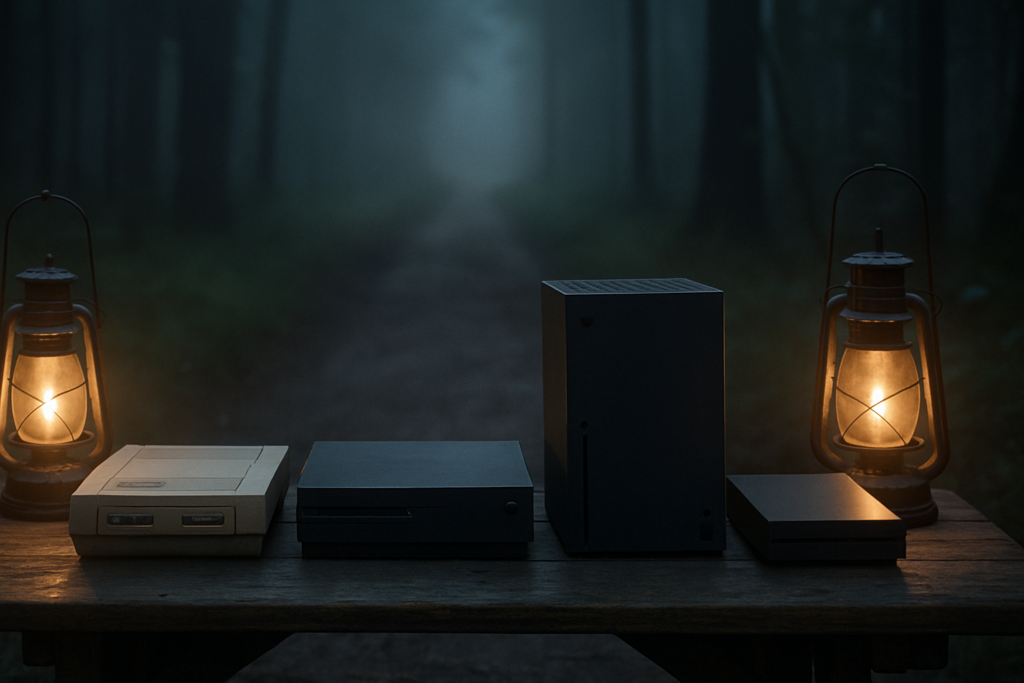When it comes to gaming, the age-old debate between console gaming and PC gaming continues to spark fervent discussions among players. As a seasoned gamer, I’ve delved into the realms of both platforms to uncover the unique experiences they offer.
From the sleek design and simplicity of consoles to the customizable options and power of PCs, each has its allure. In this article, I’ll delve into the nuances of console gaming versus PC gaming, exploring factors such as graphics, performance, game library, and overall user experience.
Whether you’re a dedicated console enthusiast or a die-hard PC gamer, understanding the strengths and weaknesses of each platform is crucial in determining which one aligns best with your gaming preferences. Let’s embark on this gaming journey together and unravel the age-old question: which offers the ultimate gaming experience – console or PC?
Overview of Console Gaming vs. PC
Considering the ongoing debate between console gaming and PC gaming, I delve into the distinctive qualities each platform offers. Exploring aspects like graphics, performance, game library, and overall user experience will allow readers to compare consoles and PCs effectively. My aim is to assist readers in choosing the gaming platform that aligns best with their preferences.
Graphics and Performance
- Visual Quality: PC gaming often offers superior graphics due to higher-end hardware capabilities, allowing for enhanced resolutions, frame rates, and advanced visual effects compared to consoles.
-
Optimization and Performance: Consoles, while optimized for their specific hardware, may not match the graphical fidelity of PCs; however, they provide a consistent performance tailored for gaming, ensuring smoother experiences without the need for upgrades.
Comparison of Graphics
In terms of raw graphical power, PCs have the upper hand over consoles. With the ability to upgrade graphics cards and processors, PCs can provide cutting-edge visuals and support higher resolutions and frame rates.
On the other hand, consoles have a set hardware configuration, limiting their graphics to what is available at the time of release. While consoles can still deliver impressive graphics, they may not match the graphical fidelity that PCs offer, especially in the latest games.
Customization and Upgradability
Exploring customization and upgradability in gaming platforms is essential for determining the best gaming experience. PCs lead in customization, allowing me to personalize every aspect, from aesthetics to components, to suit my unique gaming style.
In contrast, consoles offer limited customization options, restricted to specific hardware configurations. While I can choose different console variants, the overall flexibility falls short compared to what PCs provide.
When it comes to upgradability, PCs again take the lead. I can upgrade any component whenever necessary, ensuring my gaming rig stays relevant and powerful as technology advances.
On the other hand, consoles have fixed hardware with minimal upgrade options. Users often need to buy new systems to access improved hardware, which can incur additional costs and may affect previously acquired content.
In summary, the customization and upgradability of PCs offer greater versatility and longevity than consoles. This ensures my gaming experience remains tailored to my preferences and up to date with the latest advancements.
Price and Affordability
When it comes to comparing the price and affordability of console gaming versus PC gaming, several key factors need to be considered.
Initial Investment
For console gaming, the initial investment is usually more straightforward. You can purchase a console, like the PlayStation or Xbox, for a set price that includes the necessary hardware to start gaming. On the other hand, PC gaming often requires a higher initial investment.
Building or buying a gaming PC with equivalent performance to a console can be more expensive.
Long-Term Costs
While consoles may have a lower upfront cost, the long-term expenses can add up. Console games are often more expensive than their PC counterparts, and subscription services like Xbox Live or PlayStation Plus are additional ongoing costs.
In comparison, PC games typically go on sale more frequently on digital platforms, and online multiplayer is generally free.
Upgrade and Maintenance
When it comes to upgrading or maintaining your gaming setup, PCs offer more flexibility. You can upgrade individual components like the graphics card or RAM to keep up with the latest games. However, these upgrades come with added costs.
Consoles, on the other hand, have limited upgrade options. If you want better performance or graphics, you usually need to purchase a newer console iteration.
Overall Affordability
In the long run, PC gaming might be more affordable for avid gamers who are willing to make the initial investment and take advantage of sales and discounts on games. However, for casual gamers or those who prefer a simpler setup, the lower initial cost of consoles and their ease of use may make them a more budget-friendly option.
Consider your gaming habits and budget constraints to determine which option offers the better experience in terms of price and affordability.





